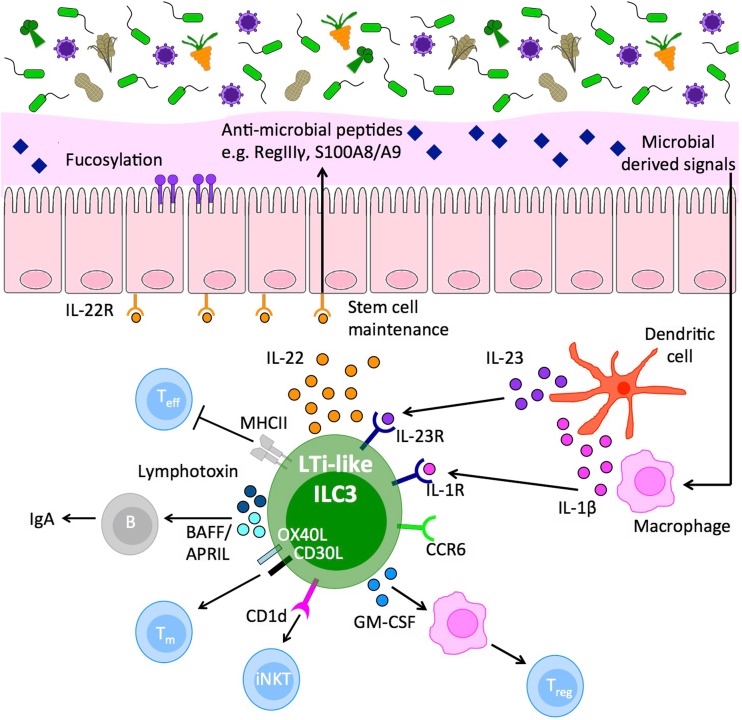Fig. 1.
Group 3 innate lymphoid cells are central orchestrators of intestinal immune tolerance. The intestinal tract is host to a wide range of exogenous antigenic stimuli derived from microbial and dietary sources. Group 3 innate lymphoid cells (ILC3) are present constitutively in the intestine and have central roles in maintaining tolerance and tissue homeostasis. In particular, one subset of ILC3 (LTi-like ILC3) possess multiple mechanisms to regulate immune responses and reinforce intestinal barrier function in the intestinal tissue and associated lymphoid structures. Intestinal ILC3 are a dominant source of interleukin (IL)-22 at steady state, produced in response to microbially driven cytokine cues provided by tissue-resident myeloid cells. IL-22 acts to reinforce epithelial barrier tight junctions and induce antimicrobial peptides, mucus production, and fucosylation of the epithelial cells to maintain segregation of commensal microbes. In addition, ILC3 act either indirectly (via cytokine effects on intermediary cells) or directly (via cell–cell contact) to control the quality and magnitude of the adaptive immune response. Together, intestinal ILC3 represent an important cellular regulator of intestinal tissue health

